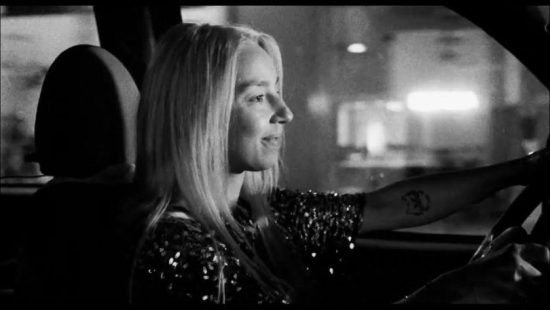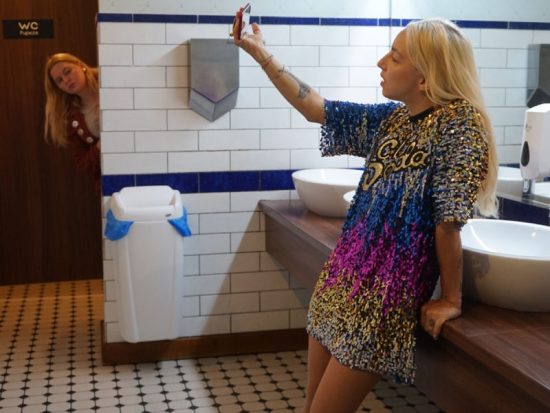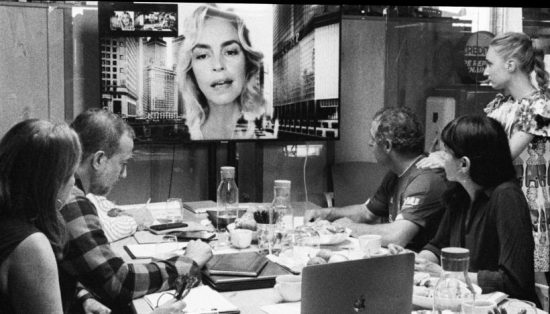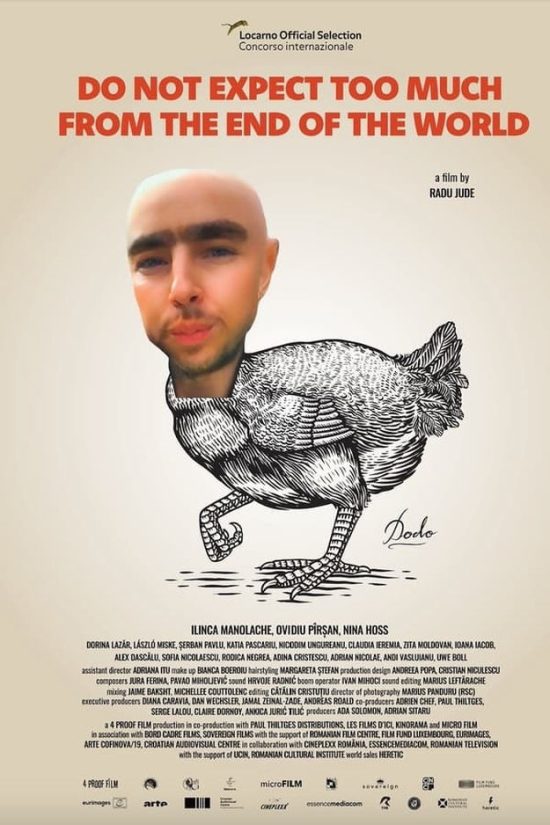Review: Do Not Expect Too Much From The End Of The World – “Highly unusual and fascinating work”
Directed by Radu Jude
Starring Ilinca Manolache, Nina Hoss, Uwe Boll, László Miske, Dorina Lazar
The Golden Bear award-winning Radu Jude returns with an incredibly ambitious – not to mention lengthy, at a hefty two hours and forty-three minutes – piece, which happily pays homage and also subverts elements of Goddard and the French New Wave with very modern, of-the-moment elements (not least digital tech, online social media) and filters it all through the appalling, endless grind of trying to make ends meet in the gig economy, cross-cut frequently with vintage film from the early 1980s of a woman taxi driver (a rarity back then), who share both a name – Angela – with our protagonist (played by Ilinca Manolache, who carries so much of this film) and, despite the decades between them, also share many similarities in their life and work demands.
Modern-day Angela is filmed mostly in her car, constantly driving from one task to the next for her wealthy employers (who naturally expect her to work incredibly long hours for a pittance, while they make far more money themselves), and the camera work here lends an almost video-blogging aspect to the film, as if the many scenes of a tired, grumpy Angela endlessly driving from job to job start to look like they should be part of her social media. Meanwhile, she uses digital filters to appear as a bald-headed, mono-browed joke of a man, the sort who worships misogynistic hate-mongers like Tate (who she references in this persona), which she intends as a sort of joke, but which obviously also allows the put-upon Angela to indulge in some much-needed angry venting, and perhaps also a way of purging some of that same bigotry she encounters herself in her daily grind. That she’s running from job to job to record interviews with workers for a multi-national company who were injured in the job (for a work safety film!), while she herself is so overworked she falls asleep at the wheel, just adds to a relentless sense of a treadmill and little changing for most people, always at the mercy of the whims of the rich and powerful employers.
Jude employs an incredible array of visual styles and flourishes – from a sharply contrasted, documentary black and white to the washed-out colours of older film stock for the 1980s Angela, to the artificial filters of the social media segments, making great use of cuts and jumps, but also unafraid to sometimes lock the camera into one view for a very long scene (one of the injured workers telling his story, then again, then again, multiple takes so the company can then edit his words to suit themselves, not the truth), making it a visual smorgasbord of cinema and modern multimedia.
It’s often in your face, rude and crude in places, and the feeling that between the 1980s and modern-day Angela’s world very little has changed, that if anything life has just become grimmer and harder for many more can be overwhelming (especially given the very long running time), yet it is leavened with a lot of dark humour and satire. In some places it is examining the way a lot of people have to live and work now, holding up a mirror in a way many social-realist directors would recognise, but in other moments it is holding up a dark, twisted, Funhouse distorting mirror, as much satire as it is commentary. It’s clearly not a movie for everyone, but many cinephiles will find this highly unusual and fascinating work.
Do Not Expect Too Much From The End Of The World is out on 8th March 2024.













